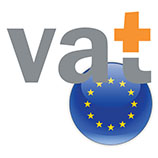Decision from ECJ: penalties on reverse charge VAT
 The ECJ gave its decision in the Farkas case (C-564/15), following the opinion published last November by the advocate general. The powers of Member States after this judgement have been reduced, they are no longer allowed to impose penalties on reverse charge transactions that are mistakenly reported. This case is particularly significant for non-established companies registered for VAT in other EU counties, as these business are frequently involved in reverse charge transactions.
The ECJ gave its decision in the Farkas case (C-564/15), following the opinion published last November by the advocate general. The powers of Member States after this judgement have been reduced, they are no longer allowed to impose penalties on reverse charge transactions that are mistakenly reported. This case is particularly significant for non-established companies registered for VAT in other EU counties, as these business are frequently involved in reverse charge transactions.
To summarise, the ECJ position is as follows:
- The tax authorities cannot assess a penalty on the output VAT of the transaction and then request input VAT to be deducted separately, if a business is charged VAT where it should have received an invoice under the reverse charge mechanism. The Hungarian authorities, in the Farkas case, assessed a penalty of 50% of the VAT due;
- If a business is charged VAT where it should have received an invoice under the reverse charge mechanism, such a business should be permitted to subtract input VAT incurred where it is not possible to recover the VAT and net amount with a credit note issued by the supplier, for example, where the supplier is bankrupted.
This decision by the ECJ gives the opportunity for businesses who receive penalties for not reporting reverse charge purchases in due time in the VAT return.
amavat Europe provides a one-stop-shop solution for VAT obligations within Europe. We assist clients with a single point of contact that speaks their language and handles all VAT related issues with a standard and cost efficient approach.
If you have any queries or questions, please do not hesitate to contact amavat Europe.
To find out more information please visit www.amavat.eu













